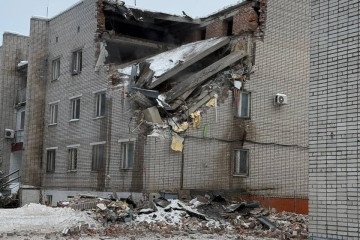A resident of temporarily occupied Melitopol, Tetiana Plachkova, who was taken by Russian forces along with her husband, has passed away while being held in Russian custody on the temporarily occupied territory. Tetiana was 51 years old. Before the war, she and her husband, Oleh, owned two cafes in Melitopol. After Russian forces took the city, they stayed to care for Tetiana’s mother. On the night of September 25-26, 2023, armed men in uniform, reportedly from the FSB (Federal Security Service of the Russian Federation), according to their daughter, Liudmyla Melnikova, entered their home.
According to Media Initiative, the couple was detained after a search, during which their phones and documents were confiscated. They were handcuffed and taken to an unknown location. For almost six months, Liudmyla had no information about her parents. Appeals to Ukrainian law enforcement and inquiries to the occupation authorities brought no results. In February 2024, she learned that her mother had been admitted to an intensive care unit in a Melitopol hospital, reportedly in a coma. According to the medical staff, she had been held somewhere before her hospitalization and had contracted the flu.
Medical reports showed Tetiana had severe bedsores and bruising, but the details of her condition were unclear. Liudmyla was not allowed to visit her mother or arrange her transfer to another hospital, as Tetiana was reportedly being investigated for espionage. She had been assigned a state-appointed lawyer, Olena Shapovalova, who now worked for the occupation authorities.
Liudmyla sought assistance from the International Committee of the Red Cross, but they were unable to access the occupied territories. Efforts to transfer her mother to a hospital in Ukrainian-controlled areas went unanswered. On May 23, 2024, Tetiana passed away. The occupation authorities reported the cause of death as pneumonia and related complications.
There is some confusion around the date of her passing, with Russian authorities stating it occurred in July. Liudmyla is now seeking more clarity on the matter. Since Tetiana’s death, communication with her lawyer was cut off, and the espionage investigation was closed.
Liudmyla could not return to Melitopol to attend her mother’s funeral. Tetiana was buried by her elderly mother, who remains in Melitopol. Meanwhile, there is still no confirmed information about the whereabouts of Tetiana’s husband, Oleh. Some reports suggest he may have been transferred to Rostov, but this has not been verified. Liudmyla continues to work with Ukrainian and international organizations to locate her father.
Russian occupation authorities has been systematically abducting children and civilians from occupied territories. These actions not only violate human rights but also aim to instill fear and disrupt communities, contributing to the ongoing humanitarian crisis in the region.

-83bc79362bd0ada118d3141a4450eb9f.jpg)

-c439b7bd9030ecf9d5a4287dc361ba31.jpg)




